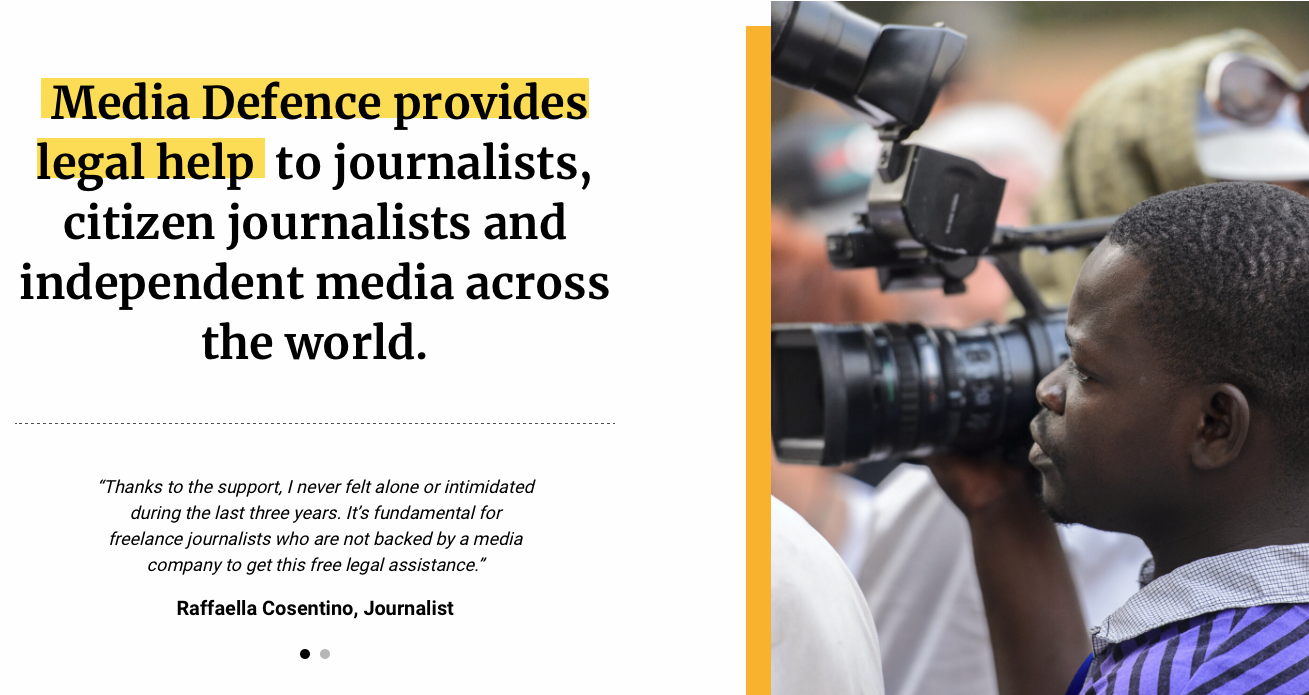Structures
A list of institutions and professional networks that support independent / investigative tech journalism via dedicated funding schemes or free legal advice.
-

AI Accountability Fellowship at The Pulitzer Centre
This initiative provides vital support to journalists worldwide who are investigating issues of accountability pertaining to the development and deployment of AI technologies by governments and corporations for predictive and surveillance purposes. Journalists selected for the program receive grants of up to $20,000 over a ten-month period, coupled with mentoring support from the Center to aid them in their reporting projects.
-

The Reuters Institute Journalist Fellowship, University of Oxford
This fully-funded fellowship allows journalists to spend a few months at the University of Oxford working on a journalistic project that holds significance for their personal development, their newsroom, or the broader industry. In addition, they are able to attend seminars and discussions with renowned experts, engage in meaningful exchanges with fellow journalists, and participate in relevant events and symposiums at Oxford.
-

Committee to Protect Journalists (CPJ)
This New York-based nonprofit is a global leader in defending the rights of journalists across the world so that they can report freely and without fear of retaliation. Through a global body of 40 specialists and a network of correspondents, the organisation carries out relevant research, creates evidence on barriers to free press, campaigns for journalists’ freedom and safety, and reports on and takes action on behalf of those persecuted.
-

Media Defence
This international human rights organisation defends journalists in court, fights for improved media freedom through strategic lawsuits, and assists local organisations in building their capacity to protect journalists. They also run training programmes to strengthen the capacity of local lawyers to protect freedom of expression for their communities and develop easy-to-use and readily available online resources for them.
-

Legal Network for Journalists at Risk (LNJAR)
This network supports journalists all over the world in their quest for justice for crimes committed against them and offers them top-notch legal representation to defend against criminal accusations or civil litigations so they may carry on with their work unhindered. With this legal assistance, journalists can report fearlessly on crucial public concerns, ignite significant discussions, and hold authorities accountable. They also curate useful online resources for journalists and newsrooms.
-

AP's local news AI initiative
This initiative includes research, training, and case studies to assess how AI can be implemented in local newsrooms. It also offers guidance on how to use the technology and how to report on it.
-

Journalists on Hugging Face
A community to share AI in journalism use cases, projects, and test tools that can be implemented in newsrooms.
